1980s: The Founders’ Original Vision
In 1986, a group of individuals with OCD met while participating in some of the first medication trials for OCD treatment at Yale University in New Haven, Connecticut. The principal investigator of one of the studies was Wayne Goodman, MD, then a junior faculty psychiatrist who started the OCD program at Yale University School of Medicine during his residency training. It was Dr. Goodman’s idea that participants should meet during the clinical trials to discuss their experiences of having OCD, trying to access treatment, and coping with the isolation of not knowing anyone else with OCD.
After the clinical trials were over, the group decided to keep meeting. In their very first meeting in November 1986, they discussed how few resources there were for individuals affected by OCD. Based on this discussion, the group decided to start an advocacy organization focused on improving the lives of people with OCD; the Obsessive Compulsive Foundation, or OCF (now the IOCDF), was officially incorporated three months later in February 1987.
Having realized the importance of mutual support and community, the founders began to cast their net as wide as possible to see who else was suffering in silence. Boldly, they wrote to ABC’s 20/20 describing OCD and suggesting that the producers do a segment on it. In March of 1987, 20/20 ran a segment on OCD featuring a number of the OCF Founders. The small group of Founders was subsequently flooded with 20,000 inquiries in the days following the 20/20 segment.
In order to meet the desperate need for information about OCD symptoms and treatment, the Foundation began to build their structure and seek the guidance of clinicians and researchers. They formed a Scientific Advisory Board (SAB) – chaired by Dr. Goodman – to make sure the best information about OCD research and treatment was shared with the public. With the help of the SAB, the Foundation developed and began disseminating informational brochures about OCD in response to inquiries for more information.
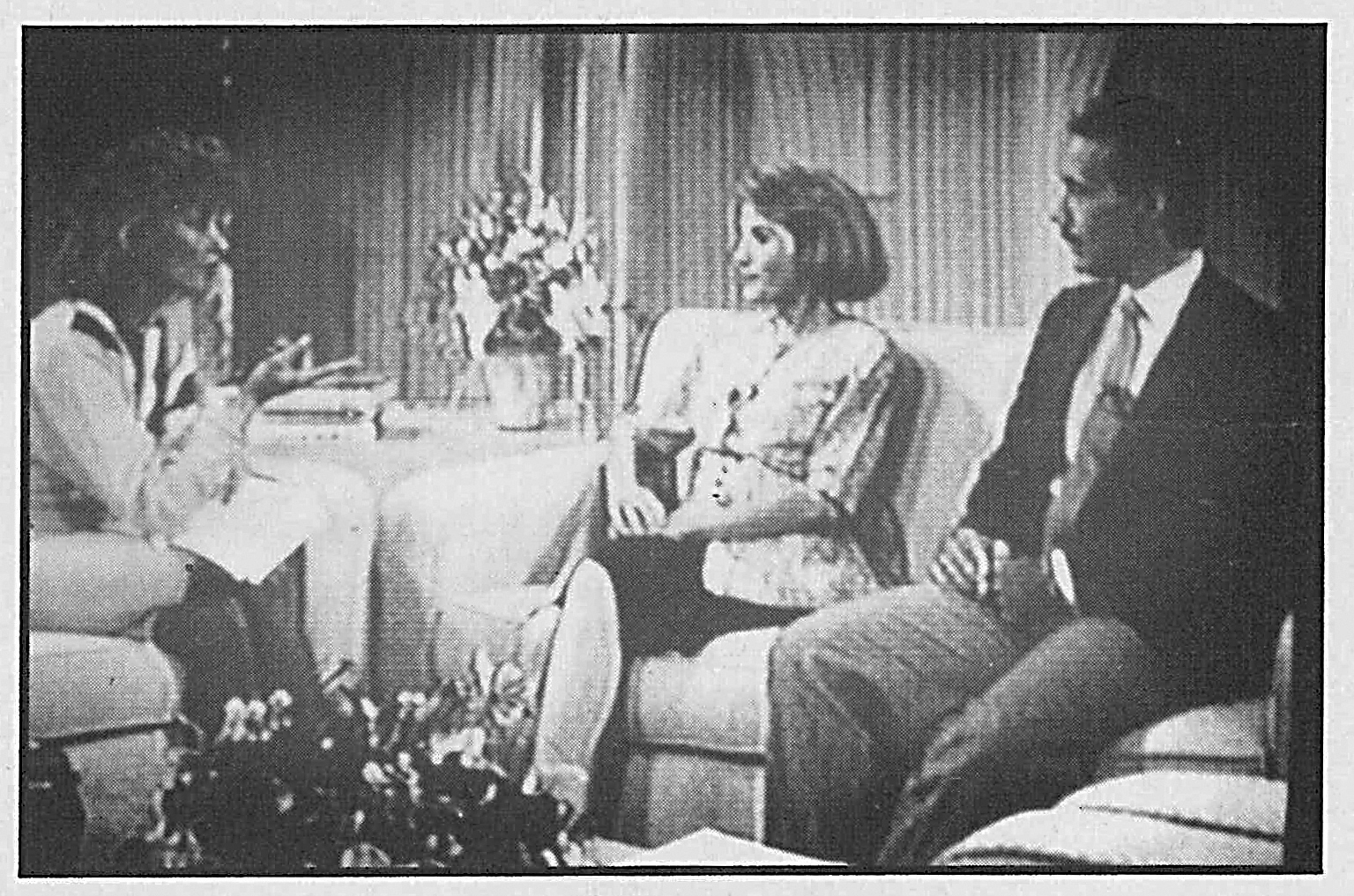
Frances Sydney (middle) is interviewed with Dr. Gary Tollefson (right) on “CBS This Morning” in 1988.
Dr. Wayne Goodman and Barbara Walters (below) speaking about OCD on the 1987 20/20 segment.
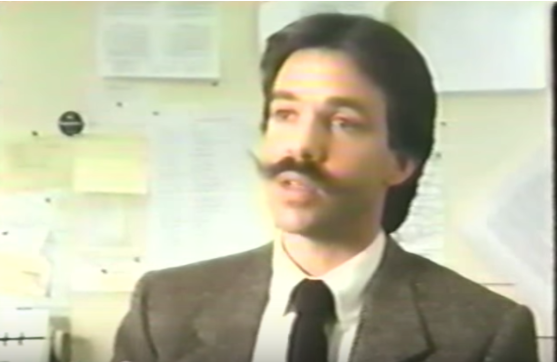
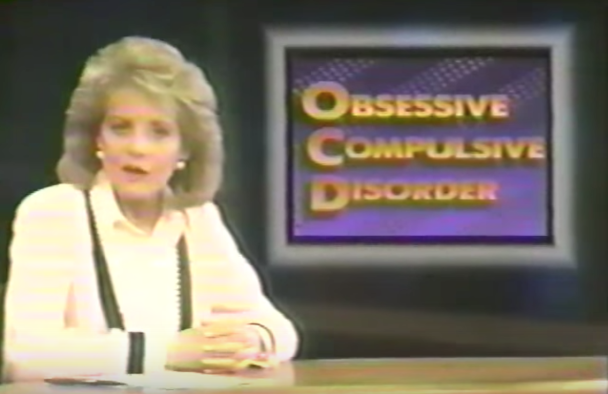
1990s: Launching Education and Training Initiatives
With a board of directors, Scientific Advisory Board, mission statement, and a small staff in place, the Foundation was now poised to translate their mission into a reality. Under the leadership of the Foundation’s first executive director, James Broatch, two major initiatives were tackled during this period: raising awareness about OCD and conducting professional training for providers.
Annual OCD Conference
The first Annual OCD Conference was held on October 7–10, 1993, in Bloomington, Minnesota. According to one of the Foundation’s founders, Patti Perkins: “The first conference was designed to provide a forum for clients, family members, professionals, and concerned community members… where renowned OCD specialists share their knowledge of the latest breakthroughs in research and treatment.” The idea of bringing all major stakeholders to one place to share experiences and information was groundbreaking then, and is still innovative and rare to see at conferences today. The Foundation continues to use this mission statement to guide us in all of our Annual OCD Conference planning. At this first conference in 1993, there were just 16 presenters giving 10 different talks, with approximately 300 conference attendees.
OCD Newsletter
In the summer of 1987, the first edition of the OCD Newsletter was sent to the nearly 10,000 individuals with OCD, family members, friends, medical professionals, and others who had contacted the Foundation after the founder’s appearance on 20/20 that March. The newsletter quickly became a space for members and donors to connect to the growing OCD community, share personal stories, and learn about the work being done at the Foundation.
Behavior Therapy Training Institute
As education and awareness improved, the founders quickly discovered that there weren’t nearly enough treatment providers and programs available to treat the large numbers of those in need. “Effective treatment for everyone with OCD” was one of the original taglines of the Foundation, and represents a core aspect of the organization’s mission from the beginning. It was clear that the best way to make this a reality was to increase the number of therapists trained specifically in evidence-based treatments for OCD and related disorders.
In 1995, the Foundation appointed a committee consisting of Drs. C. Alec Pollard, Gail Steketee, Lee Baer, John Greist, Fugen Neziroglu, and the Foundation’s Executive Director, James Broatch, to address the shortage of therapists adequately trained in the effective treatment. Their solution was to develop an intensive and innovative training program for mental health professionals, by mental health professionals.
This committee’s recommendations resulted in the launch of the first Behavior Therapy Training Institute (BTTI). The BTTI was conceived as a three-day intensive training program focused on the cognitive behavioral treatment of OCD, run by some of the leading OCD clinicians in the country. The course was offered to therapists who were already licensed and practicing but were looking for specific training on the treatment of OCD and related disorders — something not typically covered in graduate school coursework. This groundbreaking course has trained over 1,000 therapists since its launch 20 years ago and continues to be the mainstay of our training programs.
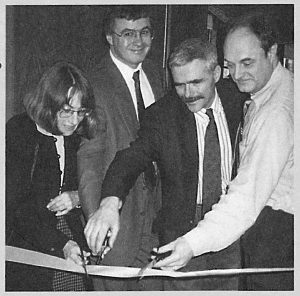
Opening of the first residential treatment program for OCD in the US at McLean Hospital’s new OCD Institute in 1997.
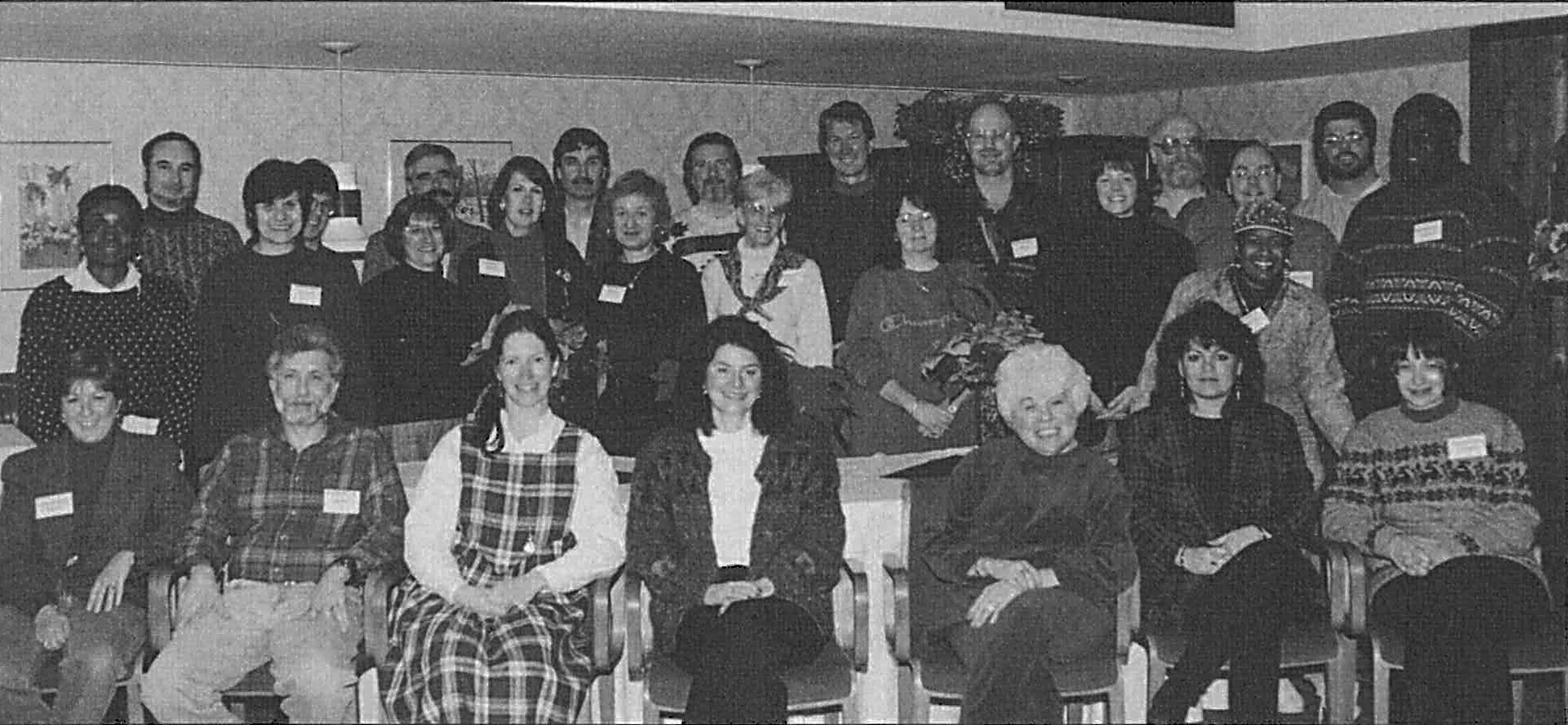
Participants and staff from the first Behavior Therapy Training Institute, held in 1995.
Early 2000s: Expansion
In 2000, Patti Perkins, a founder and past board president, took over as the Foundation’s executive director. During this time, Patti oversaw a rapid expansion of the Foundation. The Annual OCD Conference became a mainstay, research grant funding hit record numbers, affiliates began to form around the country, and the “OCD in the Classroom” kit was launched.
Meeting other people with OCD is a very, very powerful experience for attendees at the Annual OCD Conference. The sense of community is palpable — from children meeting other children with OCD for the first time, to parents finding other families navigating similar situations. Many veteran conference-goers tell us they keep coming back because of the generosity and support they received at early Conferences they attended and haven’t found since. They now enjoy a role as mentor to new attendees. This sense of community did not just happen; from the very beginning, Foundation leadership shaped a norm of generosity at the Conference and in the entire IOCDF community. This was embodied in Patti Perkins and Dr. Michael Jenike, both of whom set a powerful example, but many professionals, family members, and individuals with OCD and related disorders have also followed suit.
Almost from the beginning, the Foundation has understood the importance of research. In 1994, the Foundation awarded its first grants, totaling just over $70,000. Throughout the early 2000s, the Research Grant Program saw record fundraising and support. Since 1994, the Foundation has raised and distributed over $3 million in research dollars, funding over 100 research projects focused on OCD and related disorders.
Additionally, the IOCDF Genetics Collaborative (IOCDF-GC) was founded in 2002, holding its first meeting at the Annual OCD Conference. The goals of the IOCDF-GC were to encourage genetics researchers from different countries and universities across the globe to combine their efforts to speed up scientific progress, and allow for the completion of very large genetics studies that no single site could achieve on its own.
Since the establishment of the Collaborative in 2002, several clusters of researchers within this group have completed research studies together for the first time. One of the primary aims of the group was to complete a genome-wide association study (GWAS) to examine the DNA of individuals with OCD and their family members. The GWAS project combined participants from 21 sites across North and South America, the Middle East, Africa, and Europe. It included over 7,000 OCD-affected individuals, their family members, and healthy controls to compare differences in DNA. The first GWAS for OCD was completed in 2012. Results of the GWAS indicate that there are likely to be a number of genes (rather than only one), which combine to increase the risk for OCD. As such, it is a more challenging and “complex” illness to study when compared to other disorders such as cystic fibrosis or Huntington’s disease.
OCD in the Classroom
In 2001, another signature Foundation program was launched. For many individuals, OCD begins in childhood. It became increasingly clear that teachers were often the first people to notice the onset of OCD symptoms in children, even if teachers often couldn’t put a name to what was happening. As a result, the Foundation established an Education Task Force to develop a “How to Recognize and Respond to OCD in the Classroom” project, which eventually became “OCD in the Classroom.” The idea was to put together an educational kit that could be delivered by mental health professionals or parents to school faculty and personnel. This program continues to be a popular outreach strategy employed by many of our local affiliates to this day. Read more about how this program transitioned to Anxiety in the Classroom here.
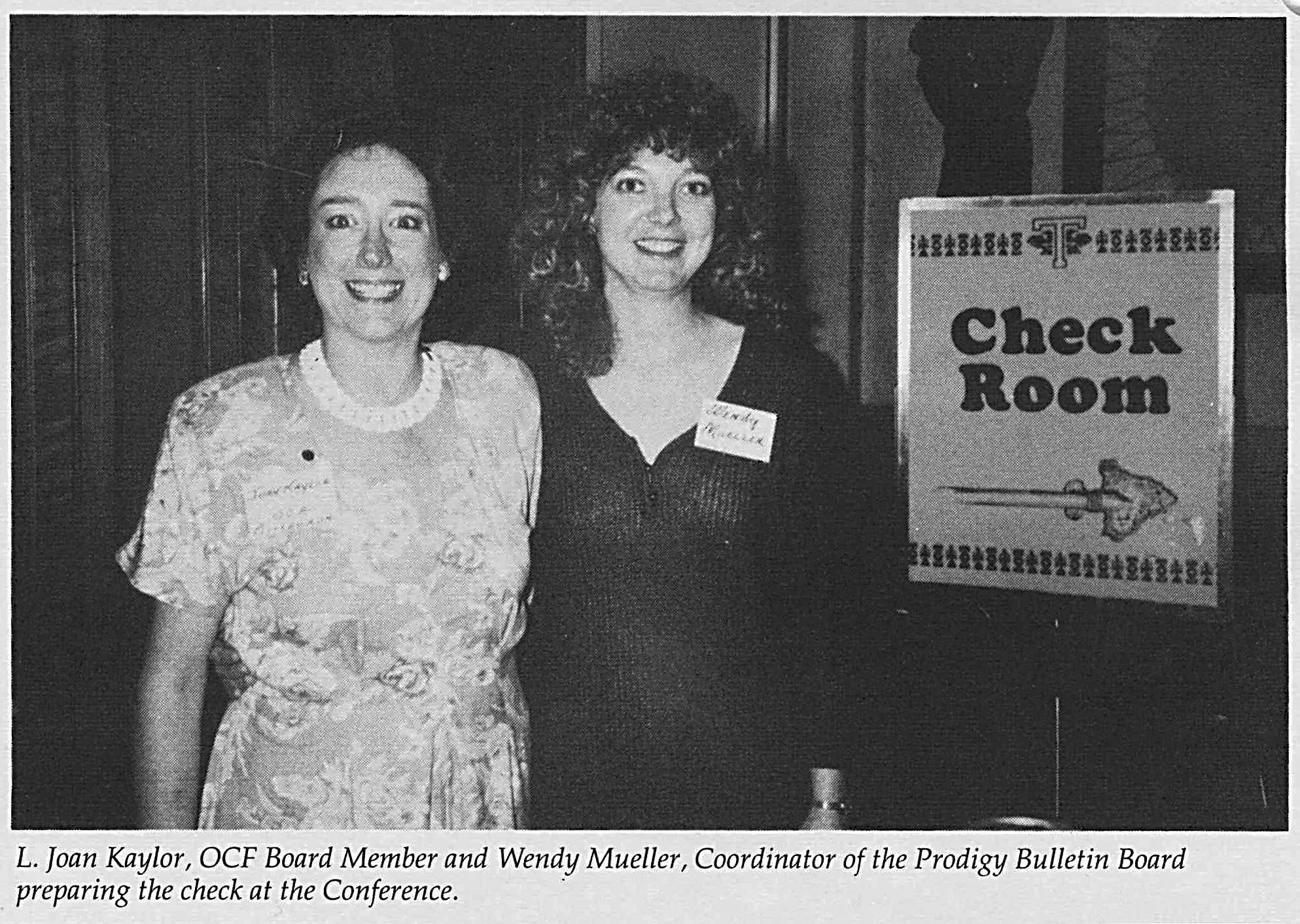
Board member Joan Kaylor (left) and longtime member Wendy Mueller (right) at the first Annual OCD Conference held 1993 in Bloomington, MN.
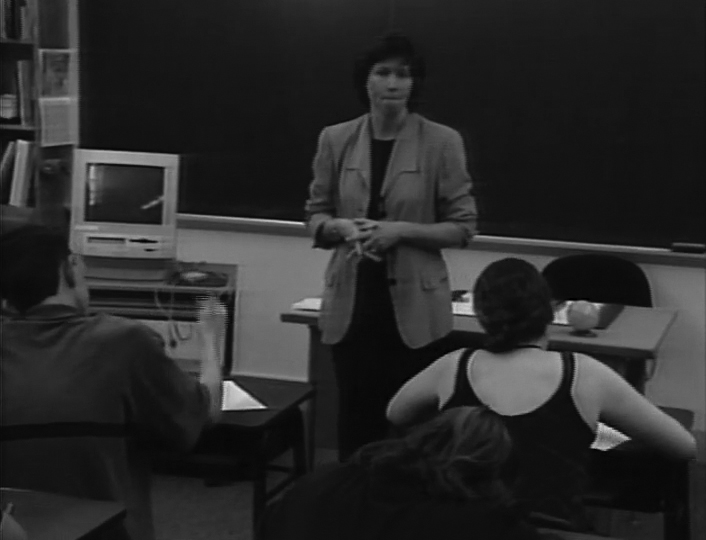
Still from OCD in the Classroom video.
2008–present: Transition, Outreach and Growth
The Move to Boston
In 2008, the Foundation moved from New Haven, Connecticut to Boston, Massachusetts while also undergoing a significant turnover in staff. The current executive director, Patti Perkins, rejoined the IOCDF Board of Directors and in September of 2008, Jeff Syzmanski, PhD, was hired as the new executive director. In 2008, the IOCDF had just four full-time staff members and has since grown to twelve full-time and one part-time staff members.
The Website
The Internet has drastically changed the way people consume information, meaning it has also drastically changed how we research health conditions. When the Foundation was started in 1986, there was no way to “google” OCD – individuals seeking information about the disorder had to scour library shelves for books on OCD, or hope their doctor or psychiatrist could answer their questions. When the Internet became more accessible in the 90s, there was suddenly a place to find information — and other people with the disorder. IOCDF board member Chris Vertullo was one of the first people to start an Internet forum devoted to OCD. Wendy Mueller (the 2014 IOCDF Service Award Winner) also started an OCD support group on the Prodigy Network. The Internet (and the resources on it) continued to evolve throughout the next decade.
The Foundation was in dire need of an easy-to-use, comprehensive website to present all of the information we had accumulated about OCD so it could be accessed by a wider audience. We also wanted to help people find providers who specialized in OCD and determined we could use the Internet to do that. Thus, the new website and Treatment Provider Database was born. We also added new websites devoted to pediatric OCD (www.OCDinKids.org), hoarding disorder (www.helpforhoarding.org) and later on, body dysmorphic disorder (www.helpforbdd.org) over the next few years.
By 2014, it was time to upgrade the site to meet the needs of our ever-growing community and ensure that our technology was up to date. We launched www.iocdf.org in the summer of 2014 with a new, improved Resource Directory of treatment providers, OCD clinics and treatment programs, support groups, affiliates, and global partners. This new database allowed anyone in the world to find existing resources near them by simply putting in a zip code or city and country and pressing “find.”
Today, when your psychiatrist or therapist diagnoses you with OCD, you can go online, search for “What is OCD?” and be taken directly to our website to learn about the causes of the disorder and how to best treat it, read expert opinions from leading clinicians about a variety of topics, and then find an OCD specialist in your area with one click. What a difference 30 years has made!
Raising Awareness
International OCD Awareness Week (#OCDweek)
Launched in 2009 and always celebrated during October (Mental Health Awareness Month), OCD Awareness Week began as a way to shed light on OCD in the broader community. Through local storytelling events in Boston, we encouraged individuals with OCD to share their experiences so people could understand and learn more about this disorder. While awareness had definitely improved in the two decades since the Foundation’s start, there was still a need to break the stereotypes of OCD and to put a real face and a real story to more accurately portray what someone with OCD was actually going through.
In 2012, we wanted to expand this awareness week globally, and so OCD Awareness Week became an opportunity to develop an engaged online community where everyone could learn about OCD and spread awareness on social media, through live online chats, or even by making a YouTube video about OCD as part of the #OCDweek video challenge.
International OCD Awareness Week has also become an opportunity to collaborate with our regional affiliates and international Global Partners to increase its impact. These groups are all asked to coordinate local and regional activities, including informational booths, lectures, storytelling events, and day-long conferences — past years have even included OCD-themed film and book festivals, a statewide OCD screening day, and most recently, a grassroots #realOCD campaign.
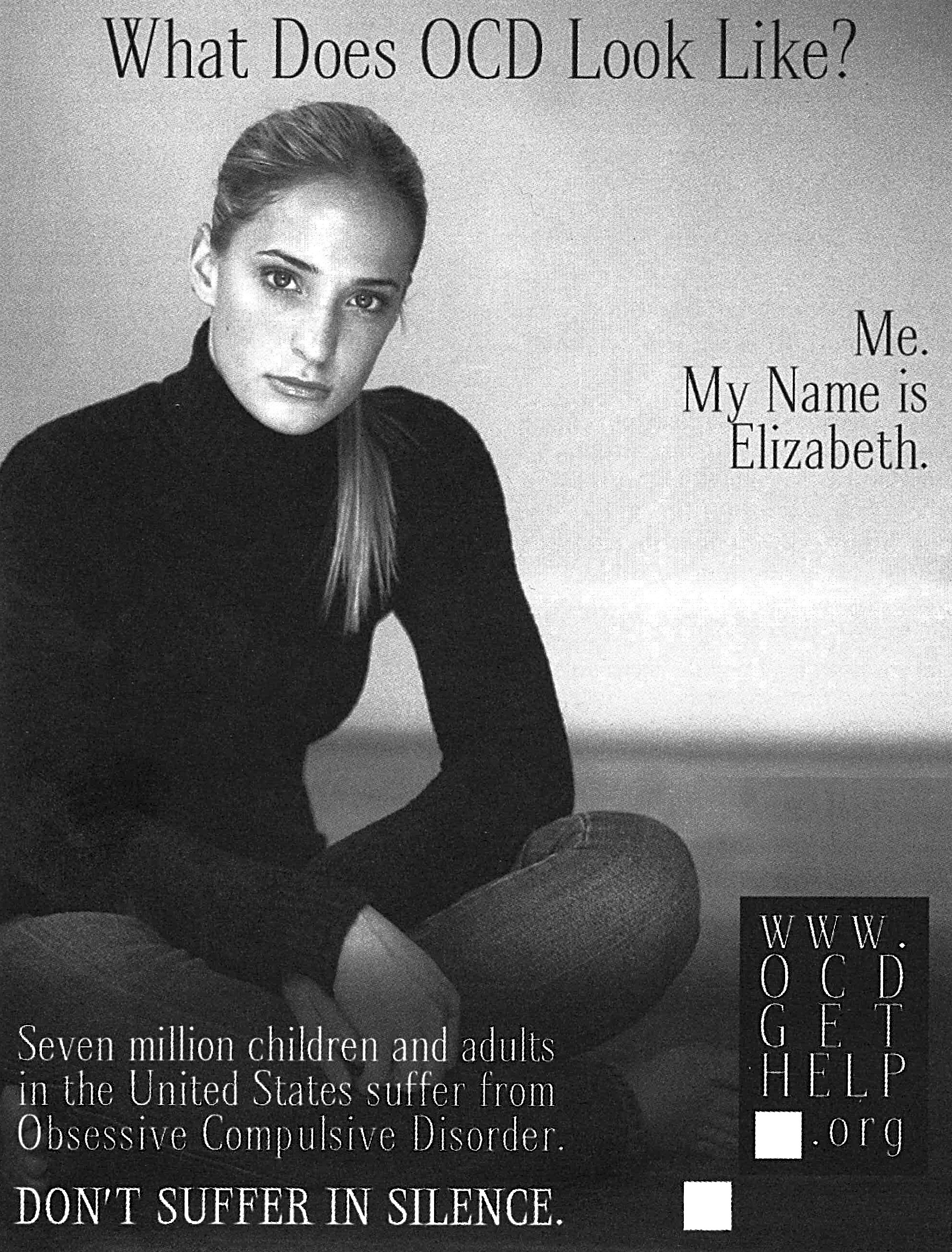
An early awareness campaign featuring IOCDF Spokesperson Elizabeth McIngvale, PhD.
1 Million Steps for OCD Awareness Walk #1Million4OCD
In 2012, Denis Asselin walked over 500 miles — or roughly one million steps — from his home in Cheyney, Pennsylvania, to Boston, Massachusetts, in memory of his son, Nathaniel. Nathaniel took his own life at just 24 after a long struggle with severe body dysmorphic disorder (BDD) and OCD. After Nathaniel’s death, Denis decided to embark on a pilgrimage to honor Nathaniel and raise awareness about the disorder that stole his young son’s life. On June 5, 2012, Denis completed his walk in Boston and was greeted by staff from the International OCD Foundation, as well as friends, family, and members of the OCD community at a rally honoring Denis and supporting OCD and BDD awareness.
In 2013, to carry on this tradition, the 1 Million Steps 4 OCD Awareness Walk was born, with our first walk in Boston on June 8, 2013.
In just a few short years, the Walk has generated a strong group of OCD and related disorder advocates who band together to raise awareness about OCD communities around the US and around the globe. Instead of just being vocal advocates, our walkers have also become visual advocates — it’s hard not to be affected by seeing a huge group of people in matching brightly colored Walk t-shirts come together to publicly support OCD and related disorder awareness.
Volunteers & OCDvocates
For many community members, there is a strong desire to give back. We officially launched our volunteer program in 2009. Volunteers have completed tasks ranging from mailings to Internet research to helping at the Annual OCD Conference. For some of our volunteers this is the first step in a re-entry to the workforce. For others, it is an expression of gratitude and the desire to be part of the mission of the Foundation. In many respects, the IOCDF would be years behind where it is now without the help of volunteers.
Our volunteer program is great if you live in the Boston area, but more and more, we heard from people in the community that they wanted to do more to give back and help in some way. Out of this need, our new advocacy project was born: the OCDvocate and Ambassador program.
Training Institute
Improving access to effective treatment for OCD and related disorders has been at the heart of the Foundation’s mission from day one. The IOCDF Training Institute continues to offer comprehensive professional trainings for therapists via our flagship BTTI and other courses. Since its inception in 1995, the BTTI has expanded to include training on pediatric OCD, hoarding disorder, and more advanced topics through the Advanced BTTI. Over 1,000 clinicians have been trained through the BTTI in the last 20 years — that’s 1,000 more therapists trained in evidence-based treatment methods to effectively treat OCD!
With better education and increased awareness about OCD in the general public, the need for OCD specialists is continually increasing. As a result, we are always looking to improve and expand our professional training opportunities. Later this year, we are excited to unveil a new curriculum that builds on the BTTI to offer a broader range of courses in variety of topics and experience levels. By offering more online courses, we also hope to make our trainings more accessible to therapists around the globe.
International Outreach
The Foundation truly attracted the cream of the crop — worldwide — when it came to professionals and advocates working in OCD and related disorders. Because of this, our reach was no longer just limited to those affected by OCD and related disorders in the United States, but also around the world. OCD is universal, and is estimated to effect 1-2 percent of the global population across all demographics. As such, we began to partner with other organizations with similar missions to ours around the world to disseminate more information about effectively treating OCD. Through these Global Partners, we have been able to help individuals in 13 countries on three continents, with the hope that this is just the beginning!
From “OCD in the Classroom” to “Anxiety in the Classroom”
While the original OCD in the Classroom program was beneficial, we received feedback that some school personnel remained resistant to the program. Many believed that OCD was not a problem in their school, and felt that other behavioral health issues were more pressing and common. We thus modified the original program to be more inclusive of anxiety in general, while still maintaining a focus on OCD, and to bring it online in our increasingly digital age. The new Anxiety in the Classroom program is the combination of elements of the original OCD in the Classroom program with cutting-edge new content, grounded in community feedback from targeted needs assessments and shaped by input from world-class experts.
Anxiety in the Classroom is a now a free online resource center for school personnel, students, and their families. The website provides general information, resources, and materials about anxiety and OCD as they relate to the school setting, as well as more specific tools for teachers, administrators, and other school personnel who may work with students with anxiety or OCD. Parents and students will also find tools and information to help them advocate within the school system, as well as to educate their teachers and classmates about OCD and anxiety. It currently contains content for school personnel, and we are working towards building sections for parents/families and students by the end of 2019.
Looking Forward
We cannot properly look forward without acknowledging how we got here. In addition to our many members, donors, affiliates, partners, Scientific and Clinical Advisory Board members, and those who have served on the Board of Directors, we want to acknowledge both the founders and past leadership of the IOCDF and thank them for their vision and determination:
Founders:
Patricia Perkins*
Wayne Goodman, MD**
Jenny Amlong
Susan Duffy
Debra Kelly
Ernest J. Lillo
Kathleen Page
Frances Sydney
Gail Taylor
Gertrude Trudel
Richard J. White, Jr.
*Currently an emeritus member of the Board of Directors
**Currently on the Scientific and Clinical Advisory Board
Board Presidents:
Patricia Perkins: 1987–1997
Susan Duffy: 1997–1999
Janet Emmerman: 2000–2004
Joy Kant: 2004–2008
Diane Davey, RN: 2008–2012
Denise Egan Stack, LMHC: 2012–2016
Shannon Shy, Esq.: 2016–2017
Susan Boaz: 2018-present
Scientific and Clinical Advisory Board Chairs:
Wayne Goodman, MD: 1988–1995
Michael Jenike, MD: 1996–present
Executive Directors:
James Broatch: 1989–1998
Thomas Styron, PhD: 1998–1999
Patricia Perkins: 2000–2008
Jeff Szymanski: 2008-2023
Matthew Antonelli (interim): 2023–2024
Rebecca Deusser: 2024–present
Consider for a moment what these individuals made possible — how they helped shepherd so many other dedicated individuals to work on behalf of those who needlessly struggle for so many years when they shouldn’t have to. Consider what it must have been like to sit around that kitchen table in November 1986. And then consider for a moment what you can do to help move us forward in the next 30 years.
